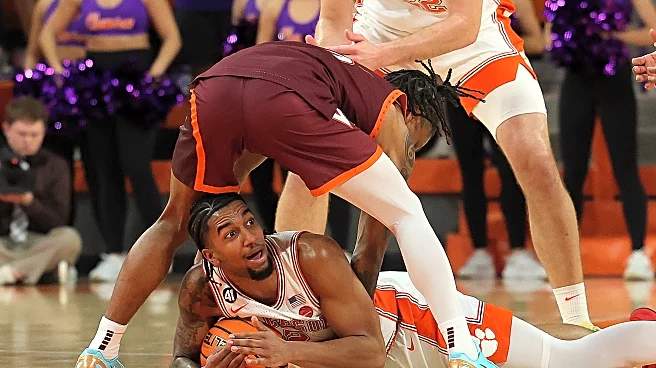What's Happening?
A coalition of former Federal Reserve chairs and White House officials has filed a brief with the Supreme Court to prevent President Trump from firing Fed governor Lisa Cook. The brief, signed by Janet Yellen, Ben Bernanke, and Alan Greenspan, among others, argues for maintaining the Federal Reserve's independence from direct presidential control. The move by President Trump marks an unprecedented attempt to remove a Fed governor, which could undermine the central bank's ability to make monetary policy decisions based on economic rather than political considerations. The brief emphasizes the importance of the Fed's independence in achieving stable prices, maximum employment, and moderate long-term interest rates.
Why It's Important?
The independence of the Federal Reserve is crucial for maintaining economic stability and ensuring that monetary policy decisions are made based on economic data rather than political pressures. If President Trump succeeds in removing Lisa Cook, it could set a precedent that allows future presidents to exert more control over the Fed, potentially leading to decisions that prioritize short-term political gains over long-term economic health. This situation could affect investor confidence and the overall perception of the U.S. economy's resilience, impacting markets and economic stakeholders.
What's Next?
The Supreme Court's decision on this matter will be pivotal in determining the future independence of the Federal Reserve. If the court sides with President Trump, it could lead to increased political influence over the Fed, affecting its ability to manage inflation and employment effectively. Stakeholders, including economists and investors, will be closely monitoring the outcome, as it could have significant implications for U.S. economic policy and stability.
Beyond the Headlines
The ethical and legal dimensions of this case highlight the ongoing debate about the balance of power between the executive branch and independent agencies. The potential removal of a Fed governor by a sitting president raises questions about the separation of powers and the safeguards necessary to protect economic institutions from political interference.









